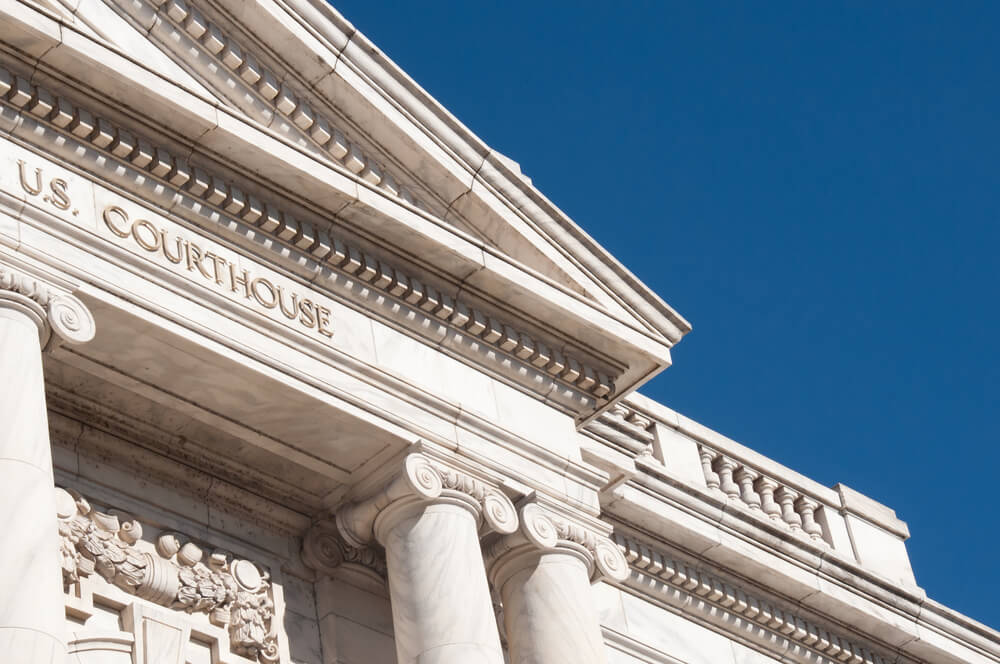Most Americans have never heard of third-party litigation funding (TPFL), the practice by which an entity that is not a party to a lawsuit nevertheless finances the plaintiff’s litigation in the hope of securing some objective – sometimes malevolent.
The practice has been used to great effect by America’s adversaries. Since the funding is purposefully opaque, those bankrolling the lawsuits – whether nations or non-state actors – are able to stay hidden while their funds keep U.S. interests tied up in court.
Although profiteering is often a driving force, some foreign entities have more sinister intentions. Researchers at the non-partisan Center for Strategic & International Studies (CSIS) concluded in 2024 that “foreign TPLF could present some dangers to the legal system.”
“The lack of transparency,” the study confirmed, “adds uncertainty to the kinds of entities accessing the legal system, potentially giving nefarious actors undue exposure to sensitive information belonging to U.S. firms that is critical to national security.”
Concerns that adversaries abuse U.S. courts
The findings confirmed earlier concerns expressed by Rep. Howard “Buck” McKeon, R-California, former chairman of the U.S. House Armed Services Committee. In a 2023 article, McKeon highlighted “ill-intentioned investment entities,” including those funded by the Chinese government, that use TPLF to obtain highly sensitive information in American courts.
A Bloomberg Law investigation revealed that one entity financing lawsuits around the world is an investment fund founded by Russian billionaires closely connected to Vladimir Putin, in an elaborate effort to avoid U.S. sanctions.
As Chairman McKeon wrote, “what if, in addition to stealing U.S. intellectual property, foreign adversaries could also accomplish many of the same goals by using well-established — and completely legal — channels? This is exactly the current situation, as litigation investment entities and third-party litigation funders leverage U.S. courts and patents without oversight or transparency.”
The concerns of CSIS and Chairman McKeon, however, barely touched the surface.
The practice also allows foreign actors to advance their own interests by creating bad publicity for competing American businesses. The court system is weaponized against U.S. national and economic security interests and politically charged lawsuits are funded with the aim of influencing domestic politics and elections. The potential risks appear limitless.
Disinformation and Trump funding bill
Disinformation is the weapon of choice for those seeking to disrupt our democracy and economy, and I have spent years traveling around the world speaking to foreign government officials about detecting and combating it. Therefore, I was especially taken back this week as TPLF and disinformation issues collided during discussions concerning President Trump’s “One Big Beautiful Bill.”
Sen. Thom Tillis (R-NC) has inserted into the Senate version a provision that would require TPLF investors to pay the same tax rate on any winnings as the actual plaintiffs of a lawsuit.
On its face, Tillis’ proposal would seem non-controversial, especially considering that foreign investors seldom if ever pay any taxes on the profits from American court cases they fund. With Republicans having won the trifecta in Washington, D.C. on their “America First” agenda, closing this tax loophole should be a no-brainer.
Yet, in recent days, a number of conservative-leaning organizations have raised a flurry of concerns claiming that they use TPLF for the public good: some sue “woke” corporations over diversity, equity and inclusion issues; others claim their lawsuits protect veterans.
Beware. Having analyzed many disinformation campaigns and their impact on capturing a population through nefarious means, the tactics being used here appear very familiar. The federal Cybersecurity and Infrastructure Security Agency provides a handy list: astroturfing, flooding the information environment. devising and amplifying conspiracy theories, exploiting information gaps, spreading targeted content. Check, check and check.
The arguments against Sen. Tillis’ provision have left well-meaning senators concerned and confused, but senators should ask themselves how many of these “conservative-leaning” opposition groups they had even heard of before this debate began.
Senators should also consider what Tillis’ opponents are not saying. They never mention foreign actors, for instance, even though both the CSIS and McKeon have established that foreign entities have a lot at stake in this debate.
Would it be unfair to ask whether these same foreign actors are funding opposition to the Tillis bill?
In any event, the Senate should not allow the opponents of Sen. Tillis’ bill to prevail without serious scrutiny.
After all, these foreign investors, including Russian oligarchs and Middle East sovereign wealth funds, should pay their fair share. In doing so, Congress will bring this secretive TPLF practice out of the shadows and protect American interests, our courts and our democracy.







